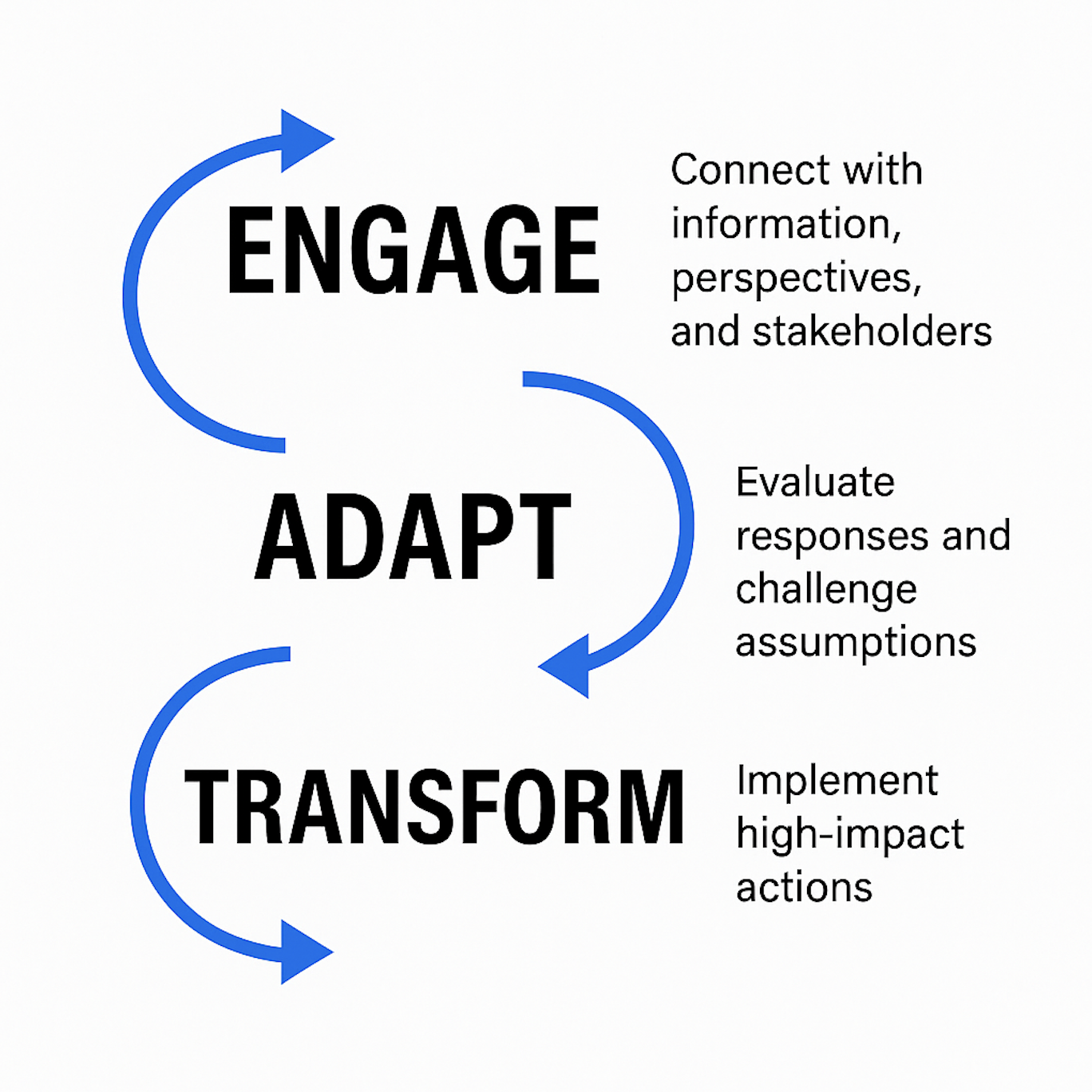Cultural historian Bob Batchelor launches Brand Strategy and Advertising, a podcast tracing 125 years of advertising history to the brand strategies shaping culture today. Batchelor teaches at Coastal Carolina University and has written 16 books, in addition to being a longtime Marketing and Communications executive.
Read more30% OFF AT BLOOMSBURY WEBSITE -- 2025 HOLIDAY SALE
Stan Lee: A Life for just $11.86 at Bloomsbury.com
Stan Lee: A Life by award-winning cultural historian Bob Batchelor
“Fascinating…Great work!” — Max Foizey, “Max on Movies,” The Big 550 KTRS, St. Louis
Stan Lee: A Life traces the icon’s journey from Depression-era New York to his reinvention as Marvel’s tireless ambassador, exploring his creative breakthroughs within the currents of American history and media.
“Respectful, well-sourced … may be the best of the bunch.” – Booklist
“Exceptionally well written…an extraordinary biography.” – Midwest Book Review
In Stan Lee: A Life, Batchelor explores how Lee and his collaborators transformed comics through serialized storytelling, moral complexity, and a humanized superhero—innovations that later powered the Marvel Cinematic Universe and cemented Lee’s status as a cross-media icon.
THE GREAT GATSBY IN THE HEADLINES -- $2.99 SALE ON THE GATSBY CODE
The Gatsby Code eBook just $2.99
When The Great Gatsby surges back into the news, we are reminded once again that America’s most shimmering and elusive novel still haunts the culture—class, ambition, desire, the fragile scaffolding of the American dream.
The Gatsby Code: A Century of Dreams and Disillusion by award-winning cultural historian Bob Batchelor
To celebrate the conversation (and help more readers join it), Tudor City Books has dropped the price of eBook to $2.99 on Amazon for a limited time.
If you’ve been meaning to revisit Gatsby’s world—or explore why the novel keeps gripping us a century on—now’s the moment. More than just a literary analysis or criticism, The Gatsby Code is a century-spanning cultural biography of a novel and its enigmatic protagonist. From Gatsby’s humble roots as James Gatz in North Dakota to his glittering rise and tragic fall in West Egg, Bob Batchelor decodes the psychological and sociological layers of Fitzgerald’s antihero and the America he both embraced and exposed.
Bob Batchelor has written a powerful study of The Great Gatsby and its ability to resist the erosion and forgetfulness of time...and discovers a Gatsby we had never seen before—wounded and alone. — Jerome Charyn, author of Maria La Divina, a novel of Maria Callas
Bottom line: Gatsby’s back in the conversation—jump in while the eBook is just $2.99. Get the The Gatsby Code eBook today!
Also in Book News: Stan Lee: A Life (Paperback) Out in Time for the Holidays!
Bloomsbury Academic has released the paperback, Expanded Centennial Edition of Stan Lee: A Life—a full portrait of Marvel’s tireless ambassador from Depression-era New York to global icon. Early praise called it “respectful, well-sourced…may be the best of the bunch” (Booklist) and “exceptionally well written…an extraordinary biography” (Midwest Book Review).
Stan Lee: A Life by Bob Batchelor, Foreword by Blink-182 and To The Stars* icon Tom DeLonge
Paperback details: 264 pages • ISBN-13: 979-8881808860 • List: $16.95
Order & save: Use code GLR BD8 at Bloomsbury.com for 20% off.
About Bob Batchelor
I write about the people and stories that shape American culture—icons who cross generations and mediums. I’ve published 16 books (and edited 19) on subjects ranging from The Great Gatsby and Mad Men to Jim Morrison and Prohibition kingpin George Remus. My work has appeared in or been featured by the New York Times, BBC, Los Angeles Times, The Guardian, PBS, and NPR. I’m an Assistant Professor of Communication, Media, & Culture at Coastal Carolina University. More at bobbatchelor.com.
REPLAY ON-DEMAND -- "WRITE YOUR BOOK" WITH DONALD THOMPSON & BOB BATCHELOR
Get Your Book Project Started (or Finished) with Help From Experts!
Watch the on-demand replay of “Write Your Book,” which outlines the steps from brainstorming through publication.
For more information, check out the conversation I had with EY Entrepreneur of the Year honoree Donald Thompson. Then, see the recent livestream we recorded at https://youtu.be/tGiNRqWGh4Q?si=1wOaFvbLm4dV2KBe
We share expert insights for leaders, entrepreneurs, and executives ready to turn their ideas into a published book. Whether you’re starting with a spark of inspiration or a rough outline, you’ll gain practical advice, motivation, and the tools you need to take the first step toward authorship.
DOUBT, FEAR, AND CONFUSION FOR MOST PEOPLE WHO WANT TO WRITE A BOOK
Roadblocks and Challenges Keep Many People from Writing Books. Overcome these Doubts and Get Your Project Off the Ground
Despite the clear benefits, many executives and senior leaders hesitate to write a book. The resistance is rarely about skill. The real challenge is often focused on fear, time, and clarity.
Photo by Tom Hermans on Unsplash
These mental roadblocks often present themselves in familiar refrains:
“I’m not a writer.”
“I don’t have time.”
“What if no one reads it?”
“It’s too late to start.”
These objections are understandable, but often shortsighted. The truth is, you don’t need to be a professional writer. You need to be a professional with insight: someone who has seen, solved, and led through challenges worth learning from.
The BIG Secret…
You don’t have to be a writer to get your ideas into the body of knowledge. As a matter of fact, some publishing insiders estimate that upwards of 60 percent of bestsellers are actually ghostwritten. Therefore, the research and writing can be supported by expert collaborators. In other words, let a professional writer put their expertise to work for your ideas or storytelling.
What matters is your willingness to own your narrative. Savvy leaders never win by themselves, so don’t think that writing your book means holing up by yourself for a year, hovering over the keyboard, and slowly driving yourself bonkers.
Teams make winning possible, so crafting your book with the best available resources should be your goal.
The greatest risk is not writing. Executives who stay silent lose control of their story. They allow competitors, markets, or algorithms to define their leadership brand. Worse, they miss the opportunity to document their unique thinking in a way that benefits their organization and inspires their team.
“Leaders often underestimate how much their story can inspire others. That’s not ego—it’s impact.”
—Kurt Merriweather, Vice President of Global Marketing, Workplace Options, and co-author, The Inclusive Leadership Handbook
Many people view writing a book as a personal win. That’s fine, since everyone will have different reasons for crafting their book. Here’s another way to look at it, though. Think of your book as a strategic tool for clarity, alignment, and growth.
Your book forces you to ask:
What do I really believe?
What do I want to be known for?
How do I want to be remembered?
Answering those questions? That’s where great leadership begins.
For more information about writing your book, ghostwriting, or executive-level thought leadership, visit the team at ExecBrand Authority or email me directly: bob@bobbatchelor.com.
AI IS NOT KILLING CREATIVITY...OUR LACK OF MASTERY IS
I have spent thousands of hours writing books and decades leading communications teams, while testing ideas in the “real world.” That long life of learning and leading has taught me something many miss in today’s AI debates: a tool only becomes powerful when real expertise is already in place.
I use AI every day. Not as a shortcut, but as a partner. It helps me scan information quickly, test narrative angles, and surface new possibilities. Those outputs matter only because I already know how to judge, refine, and shape ideas into something meaningful.
Without that background, AI is just noise.
This is why the hand-wringing over “AI plagiarism” in universities is so revealing. Students who lean on AI to produce work they can’t create themselves (by themselves or with the guidance of caring, professional faculty members) undercut their own education. They get the appearance of knowledge, not the substance. Professors are right to worry: when novices outsource the struggle, they graduate with hollow skills.
So when I hear, “AI makes people lazy” or “AI kills creativity,” I push back. Bad writing and shallow research existed long before machine learning. The problem is not the technology, but rather how unprepared people are to use it well (or properly).
The real question is: what happens when AI is in the hands of people who already bring discipline, judgment, and creativity? This is where the true frontier lies. It should unsettle us, because the threat is not AI. We suffer from our failure to cultivate and reward mastery in the first place.
2030: YOUR BUSINESS IS DYING...
...Because You Didn’t Hire Enough Humanities Graduates...
Critical and contextual thinking are the new superpowers!
Walk the halls of any failing organization in 2030 and you will see the same patterns: brilliant engineers with no sense of context; marketing departments drowning in dashboards, but blind to meaning; and leaders who can’t connect decisions to human experience.
The tragedy isn’t lack of intelligence...but lack of perspective.
For years, executives doubled down on “hard skills.” They thought: “Hire more coders. Scale the analysts. Push productivity through process.” And yet, here we are: disengaged employees, customers who don’t feel understood or valued, and cultures that suffocate innovation.
What organizations (and their leaders) missed is that human beings drive business, not algorithms or workflows. And human beings are messy, contradictory, and infinitely complex. To make sense of that complexity requires something more than efficiency metrics. It requires context, empathy, narrative, and the ability to hold multiple truths at once.
“Complex problems need people who are energized by tackling big, complex challenges.”
This is precisely what the Humanities teach. Graduates who have wrestled with history, philosophy, literature, creative writing, or art bring more than cultural awareness. They bring tools for thinking systemically, questioning assumptions, and connecting disparate dots. They can spot patterns across centuries, frame ethical dilemmas in ways that unlock better strategy, and articulate meaning when others only see noise.
The Authentic Leader argues that leadership is ultimately about one question: Are we helping people? Leaders who can’t answer that—who can’t even see it—build organizations that crumble when faced with complexity. Humanities graduates, by training, are equipped to keep asking that question, even when the numbers look good on the quarterly report.
This is not an argument against technology, finance, or engineering talent. Rather, it is a call for balance. If you want to future-proof your business, you need people who can code and people who can contextualize. People who can design systems and people who can challenge their consequences. Professionals who can solve problems and people who can imagine futures worth solving for.
Ignore this at your peril.
The companies that thrive in 2030 won’t be those with the most data. Instead, think of a future in which leaders and teams know what the data means for human lives. Complex problems need people who are energized by tackling big, complex challenges.
The EAT Model created by Bob Batchelor
Bob Batchelor is an Assistant Professor in the Department of Communication, Media, & Culture at Coastal Carolina University. He is a critically-acclaimed, bestselling cultural historian and biographer. He has published widely on American cultural history and literature, including Stan Lee: A Life and books on The Doors, Bob Dylan, The Great Gatsby, Mad Men, and John Updike. Batchelor earned his doctorate in English Literature from the University of South Florida.








